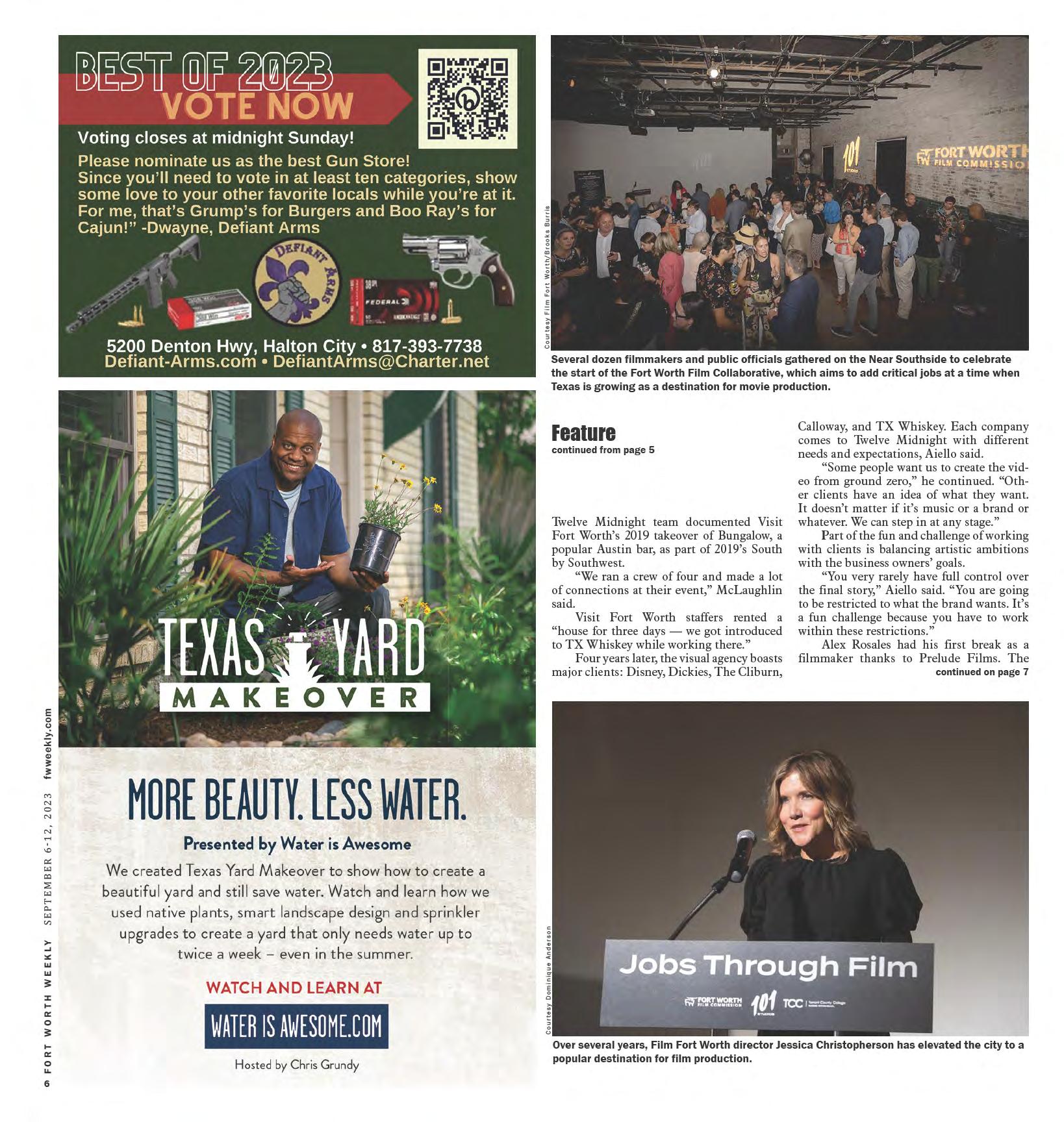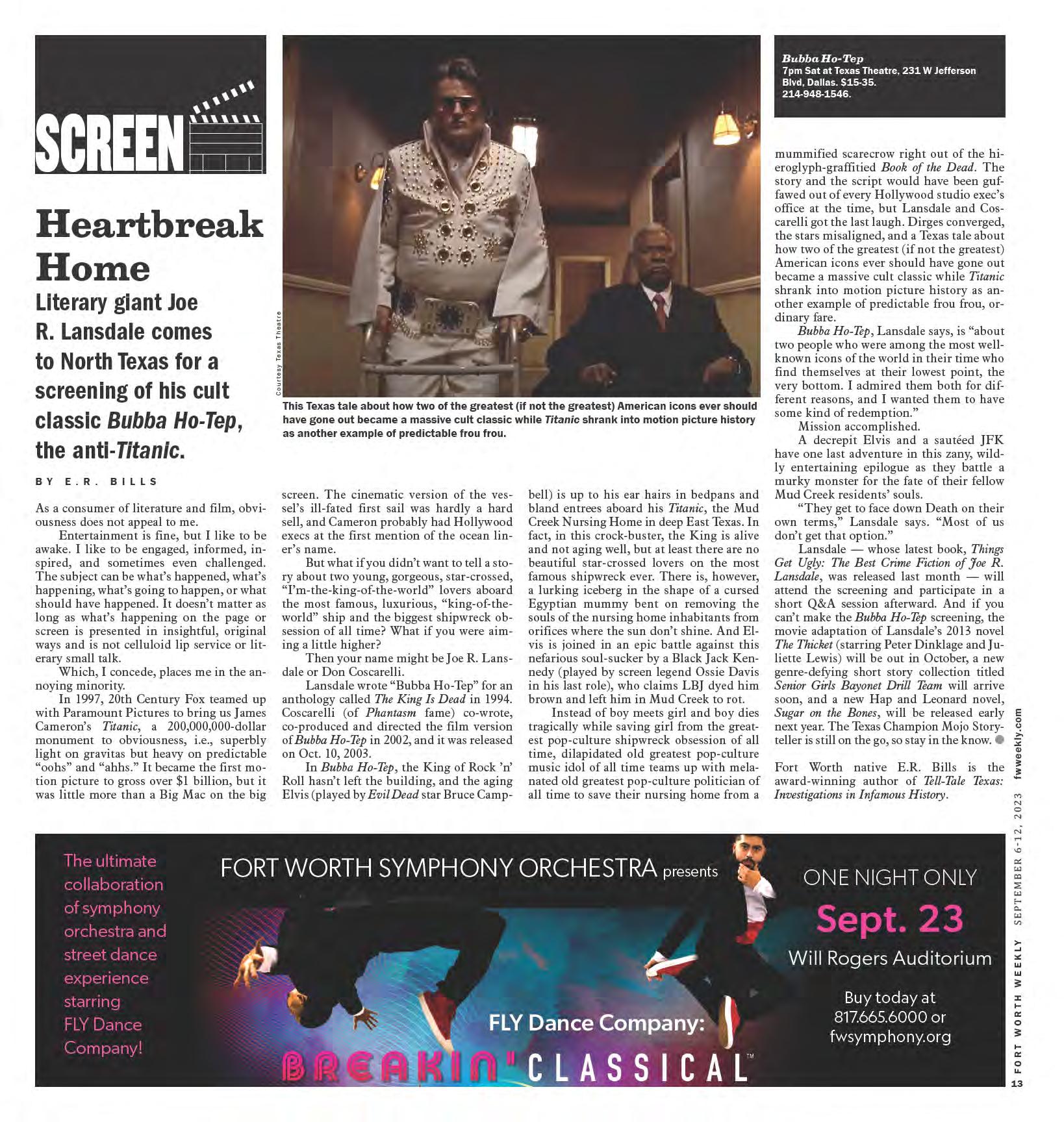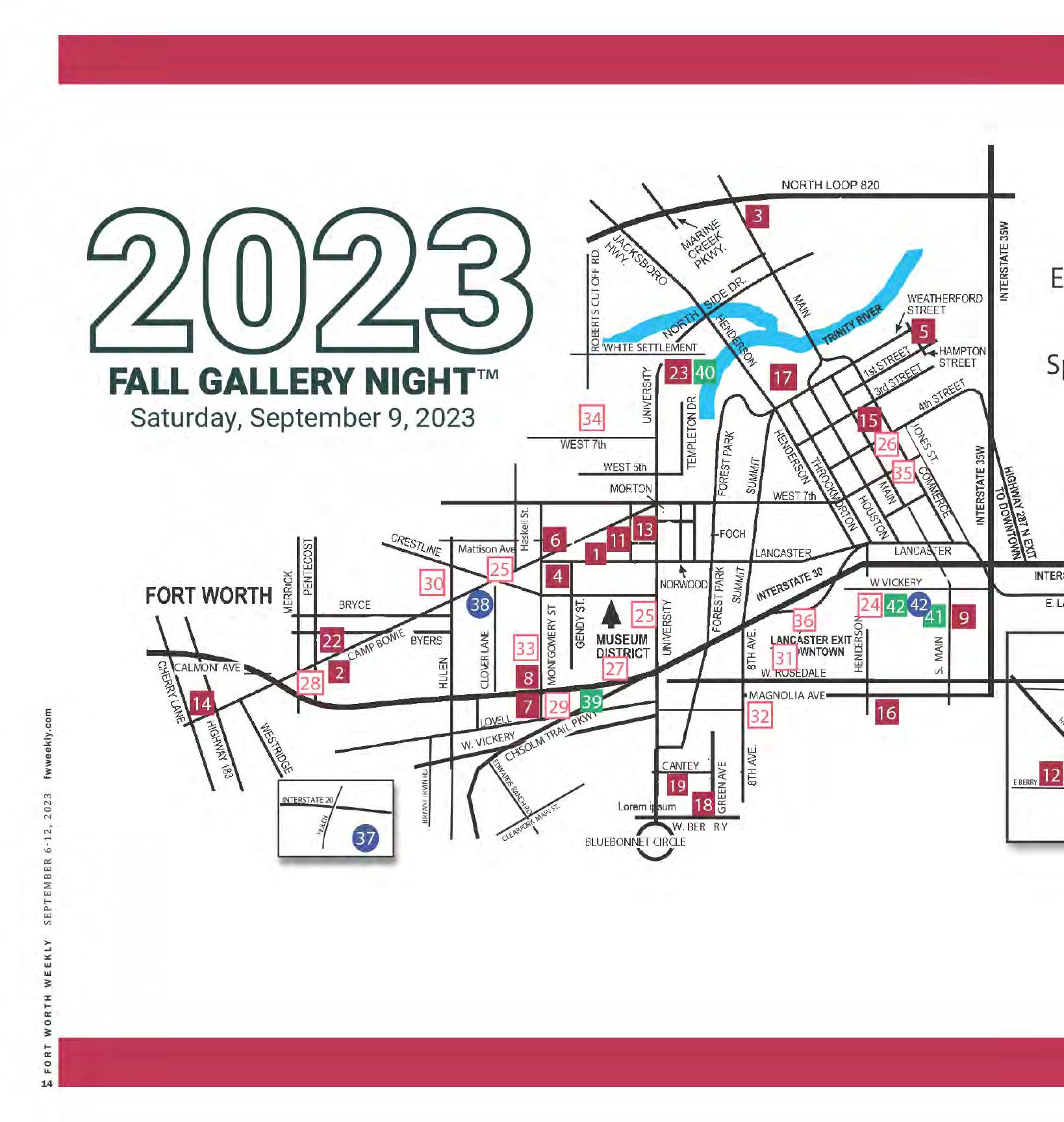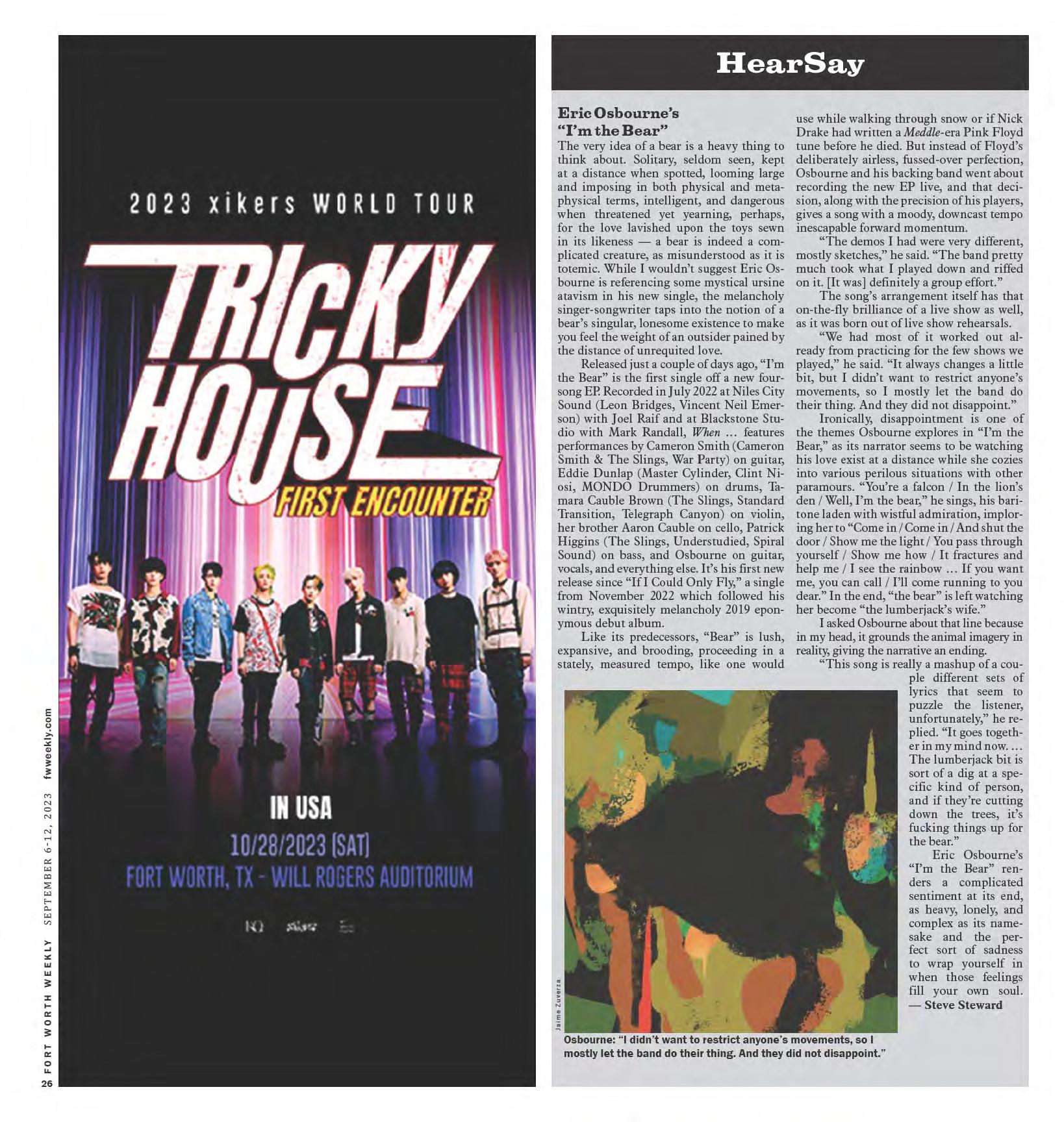






the impact of film on the city” and state.

State Rep. Craig Goldman, whose district encompasses much of Fort Worth, authored a bill that is now law that lowers the percentage of Texas residents required on certain production crews: from 70% to 55%. The lower threshold, Goldman said in a public statement, will encourage large film production companies to come to Texas because they will have greater flexibility in whom they hire or bring here.
BY EDWARD BROWNThe guy who produced Yellowstone probably knows a little bit about film. And Fort Worth.
The problem, David Glasser recently said, is that while the city may be a “great place to live,” it needs a more robust local workforce for film. To shoot 1883, the prequel to the hit Paramount Network TV show, in the Stockyards, Glasser and his 101 Studios had to bring in camera operators, gaffers, grips, and other behind-the-scenes workers from out of state. “We need to train more crews.”
Enter: the Fort Worth Film Collaborative, a new training program headed by Tarrant County College (TCC).
Glasser was in town speaking at the collaborative’s launch last week at Red Productions. The event had all the trappings of a red carpet soiree. Waiters served glasses of wine and small bites as several dozen movie pros, reporters, and public officials packed the Near Southside studio. TCC Chancellor Elva LeBlanc described the education program that she co-created with the Fort Worth Film Commission (commonly known as Film Fort Worth) and 101 Studios as crucial for meeting the needs of local and visiting videography crews. The collaboration will provide jobs for TCC students while meeting the needs of local film crews, she said.
“These certifications are designed to fit around work and family,” she added. “Around 75% of our students work.”
The creation of several four-week courses that lead to certifications in construction, lighting, and electrical comes at a time when state leaders are finally taking notice of the economic benefits of hosting film and commercial shoots. The Lone Star State’s incentive program lingered at a paltry $25 million a year after 2021’s legislative session. The passage of two state bills recently boosted public spending on domestic movie and commercial incentives to $200 million.
“The incentives have been exciting news,” said Taylor Hardy, associate film commissioner and marketing manager for Film Fort Worth. “It helps us stay competitive. We have to think of filmmaking like a business. It’s not just production folks who are helped. For every dollar invested in a film, five dollars are generated for the city. The incentives are an acknowledgment of
Fort Worth’s filmmaking industry is an ecosystem. Small to medium production companies like Coffee Pot Films, Prelude Films, and Twelve Midnight create commercial content and occasional short films throughout the year, providing consistent work for editors, actors, and production assistants. Studios like Red Productions, Blanc Studio, Lowtown Studios, and others produce original content and provide spaces for locals and outside groups to film commercials and other projects.
Two entities promote the scene: the Fort Worth Film Commission/Film Fort Worth, the city-funded group that attracts and supports outside film projects; and the Lone Star Film Festival, the nonprofit that hosts Fort Worth’s annual multi-day event. While the two groups work collaboratively to grow the quantity and quality of video content churned out locally, ongoing worker strikes threaten to taper that growth.
Projects staffed by workers with SAG-AFTRA — the union that represents around 160,000 script writers, actors, announcers, voiceover artists, and other media professionals worldwide — are slowing but not halting filming in Texas because the lockout does not impact independent, non-union projects. Texas Monthly found
SAG-AFTRA granting waivers on several Texas films, notably indie movies.
Chad Mathews, executive director of the Lone Star Film Festival, is optimistic that the walkout won’t stop film production, especially in Fort Worth.
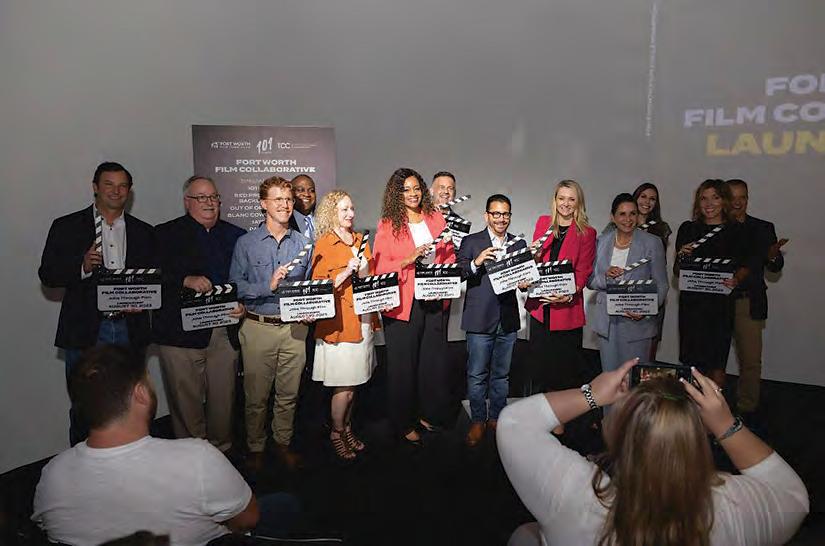
“The strike will not last forever,” he said. “The writers, actors, and companies
are suffering. Are we seeing it first-hand here? Not really. Commercials are still being shot. When it comes to wider guild members writing for a TV or movie, that has stopped.”
Speaking at the collaborative’s opening celebration, Mayor Mattie Parker said Fort Worth has historically lost [business] to nearby states like Louisiana, Oklahoma, and Georgia, where incentive programs have historically been better.
“We were able to create an [incentive] fund that has lasting potential for the State of Texas,” she said, referring to the funding boost she advocated for with the help of filmmaker Red Sanders and Goldman. “We wouldn’t need a workforce if we weren’t creating [great shows and movies]. The type of production that someone like David Glasser needs is hard work. There is something special happening in Fort Worth, Texas. I firmly believe that supporting the creative class will set Fort Worth apart.”
When we wrote about the early days of the Fort Worth Film Commission/Film Fort Worth (“Jessica in Wonderland,” June 2016), we said, “Working in the film and television industry while living in Fort Worth means you’ll probably spend a lot of your time traveling to other cities.”
In the story that captured the first few months of the newly formed Film Fort
A new Tarrant County College-led partnership is set to prepare the next generation of filmmakers in Texas.Locals frequenting the Stockyards two years ago caught glimpses of the set for 1883 Courtesy

